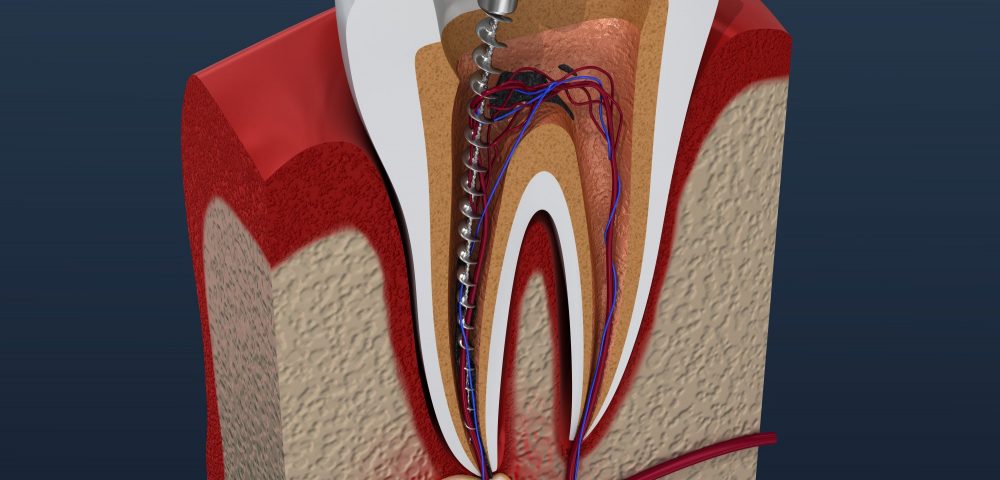Root Canal Therapy in Dallas — Save Your Natural Teeth
Severe tooth pain doesn't mean you have to lose your tooth. Our gentle root canal treatments remove infection and restore comfort so you can keep smiling.
Gentle Root Canal Treatment in Dallas
Root canal therapy saves infected teeth and eliminates pain using modern, comfortable techniques. With proper treatment, your natural tooth can last a lifetime while maintaining function and appearance.
What is Root Canal Therapy?
A proven procedure that removes infected pulp tissue while preserving your natural tooth structure.
Root canal therapy is a procedure that removes infected or inflamed pulp tissue from inside your tooth. Root canals are performed when bacteria from deep cavities, cracks or injuries reach the pulp and cause pain and inflammation.
How Root Canal Therapy Helps
- Removes infected tissue and bacteria
- Eliminates severe tooth pain
- Prevents spread of infection
- Preserves your natural tooth
- Restores normal function
By cleaning and sealing the canals, we stop the pain and prevent further infection while preserving your natural tooth structure. With modern techniques and local anesthesia, root canals are comfortable and can often be completed in a single visit.
Signs You Might Need a Root Canal
Recognizing symptoms early can help save your tooth and prevent more serious complications.
Pain Symptoms
Signs that a root canal may be necessary include severe, lingering toothache pain and increased sensitivity to temperature changes.
- Severe, lingering toothache pain
- Increased sensitivity to hot or cold temperatures
- Pain when biting or chewing
- Throbbing pain that wakes you at night
Visual Signs
Physical changes to your tooth or gums can indicate infection that requires root canal treatment.
- Swelling or tenderness in the gums
- Darkening or discoloration of the tooth
- A small bump or pimple on the gums near the tooth
- Persistent bad taste in mouth
Don't Wait - Act Quickly
These symptoms indicate that the pulp inside the tooth is infected or dying and needs to be removed to save the tooth. Early treatment prevents extraction and more complex procedures.
Our Gentle Root Canal Process
Modern root canal therapy is comfortable and efficient, often completed in a single appointment.
During your appointment, we'll numb the area completely and gently remove the damaged pulp. A typical root canal in several steps that we follow for optimal results:
Step 1: Preparation
Complete numbing and sedation options for anxious patients to ensure your comfort throughout.
Step 2: Access
A small hole is drilled to access the pulp chamber and infected tissue.
Step 3: Cleaning
Infected pulp and nerve tissue are carefully removed, and canals are cleaned and shaped.
Step 4: Sealing
Canals are filled with biocompatible material like gutta-percha and permanently sealed.
Step 5: Restoration
A custom crown is placed over the tooth to restore strength and appearance.
Comfort During Treatment
We offer sedation options for anxious patients so you can relax throughout the procedure. Most patients experience minimal discomfort during and after treatment.
Benefits of Root Canal Therapy
Saving your natural tooth provides numerous advantages over extraction and replacement options.
Preserve Natural Function
Root canals remove infection and save your natural tooth, preventing the need for extraction.
- Maintain proper chewing function
- Preserve jawbone structure
- Keep adjacent teeth properly aligned
- Avoid complex replacement procedures
Long-Term Benefits
By preserving your tooth, we maintain your oral health while providing lasting comfort and function.
- Stop infection from spreading
- Eliminate severe pain
- Cost-effective compared to replacement
- Natural appearance and feel
Aftercare & Recovery
Most patients recover quickly with proper care and return to normal activities within days.
It's normal to experience mild soreness for a few days after a root canal, but over-the-counter pain relievers and a soft diet usually help. Most people recover within a week.
Recovery Timeline
First 24 Hours
Avoid hard foods and take prescribed pain medication as directed.
First Week
Stick to soft foods and avoid smoking to support healing.
Follow-up
Return for crown placement and final restoration completion.
Post-Treatment Care
- Avoid smoking and stick to a soft diet initially
- Maintain excellent oral hygiene to support healing
- Take prescribed medications as directed
- Attend follow-up appointments for crown placement
- Contact us if pain worsens or swelling develops
We'll provide detailed instructions on caring for your tooth, and most patients return to normal activities quickly. Maintaining good oral hygiene and regular checkups will help your treated tooth last for many years.
Ready to get started?
Join thousands of Dallas patients who trust Spring Valley Dental Associates. Book online or call and we'll help right away.
